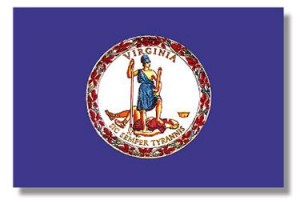
When will Virginia’s counties and cities learn about the Virginia Fraud Against Taxpayers Act?
Fairfax County is now proposing to use millions of dollars in “new money” (i.e., money raised with the power granted to Northern Virginia localities last year to increase certain taxes and fees to pay for back-logged road construction and maintenance) to pay for old problems.
For those of you that missed it, as part of last years landmark compromise, Virginia’s General Assembly agreed to allow certain localities throughout the Commonwealth to raise taxes and fees to pay for transportation initiatives.
Now, instead of using this found money for the purposes contemplated by the General Assembly (i.e., new transportation initiatives to alleviate our region’s congestion), Fairfax County has proposed to use at least $30 million of this found wealth to pay for the county’s existing transportation infrastructure.
An excellent Washington Post article by Amy Gardner and Bill Turque in today’s Metro section covers the issue in detail.
No one is suggesting, of course, that Anthony Griffin and others in county government wanted this outcome. These steps were necessary because of the general decline in county tax revenues, which in turn was a result of the downturn in the housing market. Fairfax County, along with every other county in Virginia, is in a tight spot budget-wise, and in such times tough decisions have to be made.
Regular readers of this blog will pretty much be able to anticipate what I have to say next. Fairfax County Executive Anthony Griffin and others did the same thing government leaders typically do–they looked for new money, instead of looking for ways to either collect old money or to make sure the old money was spent wisely.
A classic example of this was illuminated by Bill Turque’s Washington Post article of January 27, 2008 about the county debacle known as the Herndon-Monroe park-and-ride garage. More than $20 million dollars was spent on this garage, which opened in 1999. As early as 1997, however, the county was aware of problems with the pre-cast concrete used to build the floors and ceilings of the garage.
This was just the first of several problems, however. Another problem centers on the lack of steel diaphragms within the concrete itself. According to a study commissioned by the County, diaphragm action is so essential to the design element of the garage, “[w]e find it difficult to believe that such an important issue was not considered.”
The article includes an assertion by officials that they have little recourse at this point. While the assertion may be true, the reasons given by the county–namely, because one of the companies that could be liable has gone out of business, and the other filed for bankruptcy protection in 2002–are not the reasons why there is no recourse.
What our county leaders miss is the potential utility of the Virginia Fraud Against Taxpayers Act (Virginia Code 8.01-216.1 et seq.) to stop such waste in the future. The VFATA creates a cause of action providing for civil penalties, treble damages, and attorney’s fees against “any person” who submits false claims for payment to the Commonwealth.
“Any person” as defined by the statute includes corporate entities, associations, organizations, and trusts as well as the individuals responsible. Thus, in theory, the fact that a corporate entity had filed for bankruptcy would not preclude a cause of action against the individual operatives responsible for the false claims, and the fact that a business entity had gone out of business would not preclude a cause of action against whatever individuals had submitted false claims for payment in the past.
Under the Virginia Constitution, counties are “political subdivisions” of the Commonwealth, and there would appear to be little room for argument that a false claim submitted to a county would count as a false claim submitted to the Commonwealth under the statute.
While there is no case law under the VFATA to date, there is an enormous body of well-developed case law under the Federal False Claims Act, on which the VFATA is modeled. In litigation under the Federal False Claims Act, construction contracts are a frequent hot-spot for litigation, and there is no reason to think that the same shenanigans attempted by construction companies on contracts with the federal government are not being attempted on state and local governments across the Commonwealth.
The opinion of this writer is that county governments are too quick to throw up their hands when counties do not receive the goods or services for which they paid. The result is that counties are in a constant state of crises for funds.
If the Commonwealth of Virginia recovered more than $117 million dollars last year using the Virginia Fraud Against Taxpayers Act. If Fairfax County used the VFATA to sue individuals and companies that fail to live up to their end of the bargain in a contract with the County, perhaps the new money from the increased fees and taxes we are paying could be used for its intended purpose.
Is there any reason why counties have not stepped up to the plate and started pursuing treble damages, civil penalties, and attorney’s fees for debacles involving county funds?


